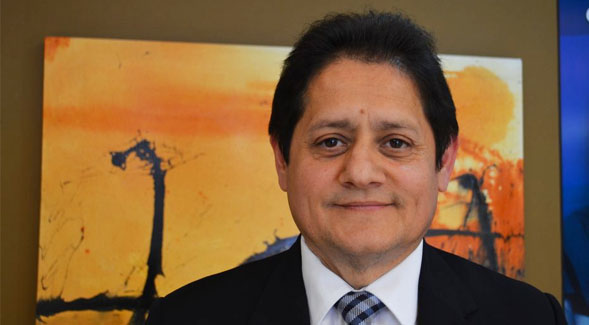Baja California Education Secretary to Visit Teacher-Education Project
Miguel Angel Mendoza will lead a group of educators involved in a binational program to prepare teachers for students who cross the border.

Baja California Secretary of Education Miguel Angel Mendoza will visit San Diego State University Nov. 5 as part of a binational teacher-education project to address the challenges of thousands of cross border “students we share.”
The binational program is a partnership that includes SDSU’s College of Education, the University of California Office of the President Mexico Initiative, and the California Department of Education. SDSU’s participation is led by the Department of Dual Language and English Learner Education.
Department chair Margarita Machado-Casas said the goal of the collaboration is to promote research across the two countries and develop a binational curriculum to better prepare the teachers of students who go back and forth across the border to attend elementary, middle and high schools.
Cristina Alfaro, binational program director, said there are more than 53,000 such students who cross the California-Mexico border, including children of parents who have been deported or are in the United States temporarily. The purpose of the collaboration, she said, is to develop a binational teacher education curriculum that prepares compassionate and knowledgeable bilingual-bicultural teachers on both sides of the border.
Program partners in Baja California are Universidad Pedagogica Nacional, Escuela Normal Fronteriza (Tijuana, Ensenada and Mexicali), and Sistema Educativo Estatal.
During his Nov. 5 visit, Mendoza will share his vision for addressing sociocultural and linguistic challenges in education on the California/Mexico border. He is expected to meet with SDSU President Adela de la Torre, interim Provost and Senior Vice President Joseph Johnson, College of Education Dean Y. Barry Chung, and faculty members.
"The College of Education is excited to support this binational collaboration that will benefit many," said Chung. "As a university located at the border, it is critical that we find ways to meet the needs of our students. This collaboration will lead to research and educational exchanges that will not only enhance the experiences of our students, but also contribute to the betterment of teacher education on both sides of the border."
Earlier this month, 36 SDSU students and eight faculty members involved in the bilingual teacher-education program traveled to Baja California to conduct lessons in public schools in Tijuana, Ensenada and Tecate. They also visited three universities in Tijuana and Ensenada that train teachers.
Mendoza’s visit coincides with the first visit under the binational teacher education program of the future Mexico-based teachers to U.S. schools. A group of 64 Baja California teachers and teacher educators will be welcomed by Chula Vista Elementary School District Superintendent Francisco Escobedo.



